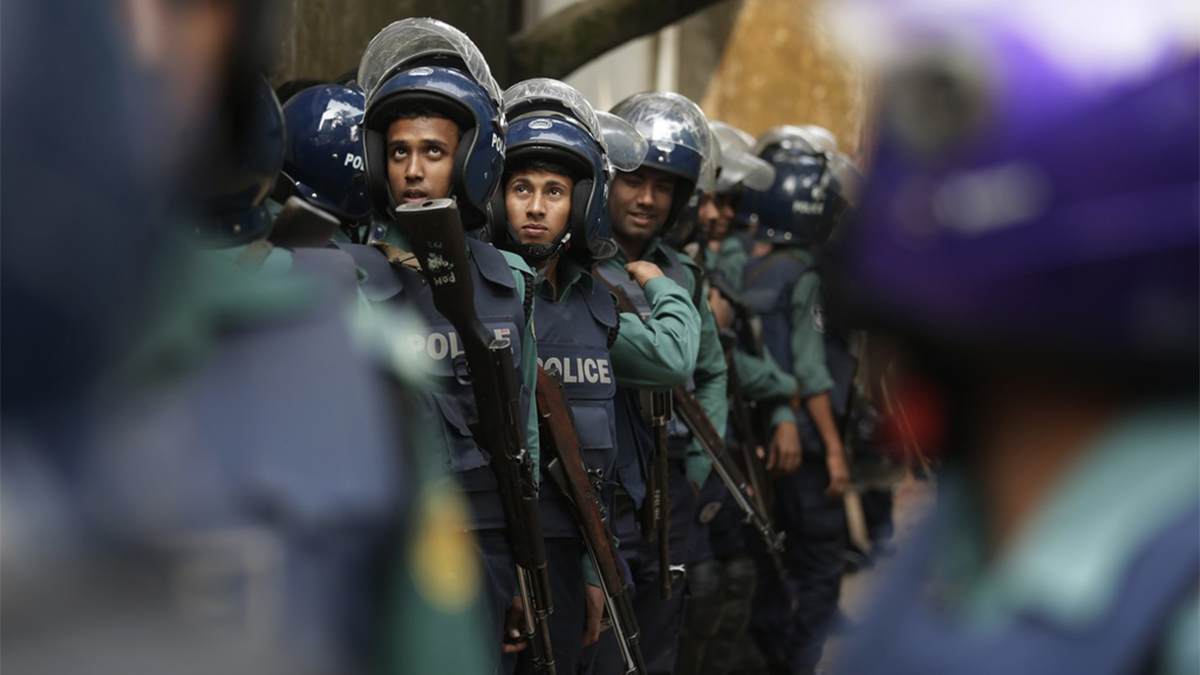Bangladesh is facing a serious challenge as violent crimes are rising, causing fear and anger among people. Official data shows a worrying trend: between January 1 and February 19, 2025, Dhaka alone saw 35 murders, along with many cases of mugging, robbery and abduction. This increase in crime has pushed the police to step up security and be more watchful.
The government’s reaction has been dismissive. Home Affairs Adviser to the Interim Government, Moinuddin Abdullah, played down the crisis, saying that the law and order situation is “satisfactory”. His statement has only made the public more doubtful as people struggle with growing insecurity.
A growing discrepancy
There is a clear contradiction between official crime data and the government’s public statements raising serious concerns about transparency and accountability. The police, responsible for maintaining law and order, have admitted that criminal activities have increased significantly. Reports highlight shocking cases of brutal murders, kidnappings and robberies happening even in broad daylight. Despite the seriousness of these crimes, the government continues to claim that the situation is under control.
The frustration among citizens is evident in the recent student-led protests across Dhaka demanding the resignation of the home affairs adviser. Protesters believe that the government’s inaction and false assurances are not only weakening public trust but also giving criminals more confidence.
The widening gap between official statements and on-the-ground realities has led to an erosion of trust in state institutions. Bangladesh’s judiciary, law enforcement agencies and political leadership all face mounting scrutiny with citizens questioning their ability—or willingness—to tackle crime effectively. The perception of selective law enforcement, where influential individuals evade justice while ordinary citizens bear the brunt of lawlessness has further exacerbated public discontent.
Role of political uncertainty in rising crime
The rise in crime is happening at a time of political instability making it even harder to maintain law and order. Bangladesh’s interim government has been criticised for being inefficient and lacking authority. According to a Daily Star editorial, home affairs adviser Abdullah blames members of the Awami League, which was in power before the transition, for the surge in crimes. The theory is that they could be creating chaos to weaken the interim government and speed up their return to power.
Impact Shorts
More ShortsIn the past, political transitions in Bangladesh have often led to increased violence as criminals take advantage of the uncertainty to strengthen their hold. The current rise in crime seems to follow the same pattern raising concerns that political groups might be using lawlessness to serve their own interests.
More policing or more repression?
In response to public anger, the government has increased patrols by the police, army and the Rapid Action Battalion in important areas. However, many people doubt whether these efforts are actually reducing crime.
As part of a large-scale crackdown called Operation Devil Hunt, the government has arrested over 8,600 people since January. Officials say this is meant to improve public safety, but critics argue that mass arrests do not usually lead to long-term crime reduction. Instead, there are fears that this operation could be used as an excuse to target opposition members and silence critics under the guise of fighting crime.
Social media: Exposing or exacerbating crime?
The rise of social media has played a crucial role in amplifying public awareness about crime with viral videos of violent incidents sparking outrage and demands for justice. While platforms like Facebook and X (formerly Twitter) have enabled citizens to share real-time updates and mobilise support, they have also exposed the inadequacies of law enforcement.
Conversely, there are concerns that social media may be contributing to heightened public paranoia. The government has taken note of this trend with some officials suggesting stricter monitoring of digital platforms to prevent “misinformation”. However, such moves have been met with scepticism, with critics arguing that the administration is more focused on controlling the narrative than addressing the root causes of crime.
Restoring credibility need of the hour
Bangladesh is at a crucial juncture where government inaction and public frustration are creating a tense situation. Officials refusing to admit the seriousness of rising crime is damaging their credibility and making people feel even more unsafe. Bangladesh observers fear that if strong action is not taken soon, the gap between government claims and public reality will only grow, and harm both governance and social stability.
)